Topical Cream Celebrates Editor-in-Residence Ebony L. Haynes
On January 22, Topical Cream gathered at Amant in Brooklyn to celebrate Ebony L. Haynes’s tenure as our 2024 Editor-in-Residence, which included the launch of our first-ever print edition, featuring all six of Haynes’s commissioned pieces in full. The evening featured readings from three of this year’s commissioned writers—Darla Migan, Zoë Hopkins, and Habiba Hopson—followed by a panel discussion moderated by Haynes herself.
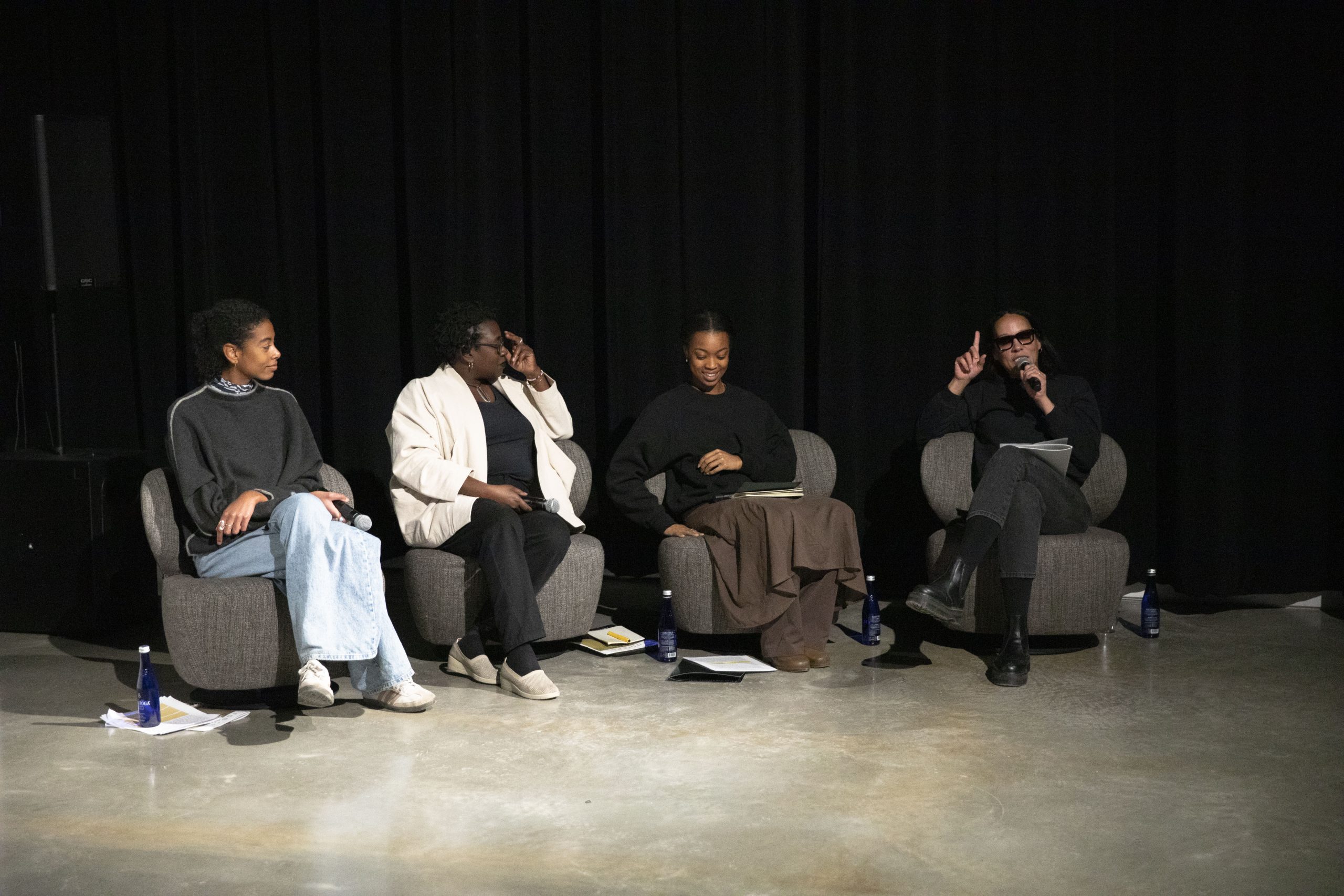
To begin the program, Executive Director Lyndsy Welgos underscored the importance of fostering spaces where experimental arts journalism can thrive, free from external pressures; Deputy Editor Elizabeth Wiet praised Haynes for her sharp editorial vision and the depth of care she brought to every commission.
Stepping up to the mic to address the audience, which included such luminaries as Legacy Russell, Kimberly Drew, and Kiyan Williams, Haynes reflected on her time as Editor-in-Residence. The world-renowned curator recounted receiving the invitation to join Topical Cream in October 2023. Despite an already packed schedule, she accepted, seeing the residency as a rare chance to convene writers and thinkers around ideas that too often go unexplored. Haynes noted that she framed her editorial approach around the “complexities of censorship” and its impact on culture and critical discourse. “I knew I wouldn’t always agree with every piece or perspective,” she admitted, “but my goal was to create a space for open dialogue.”
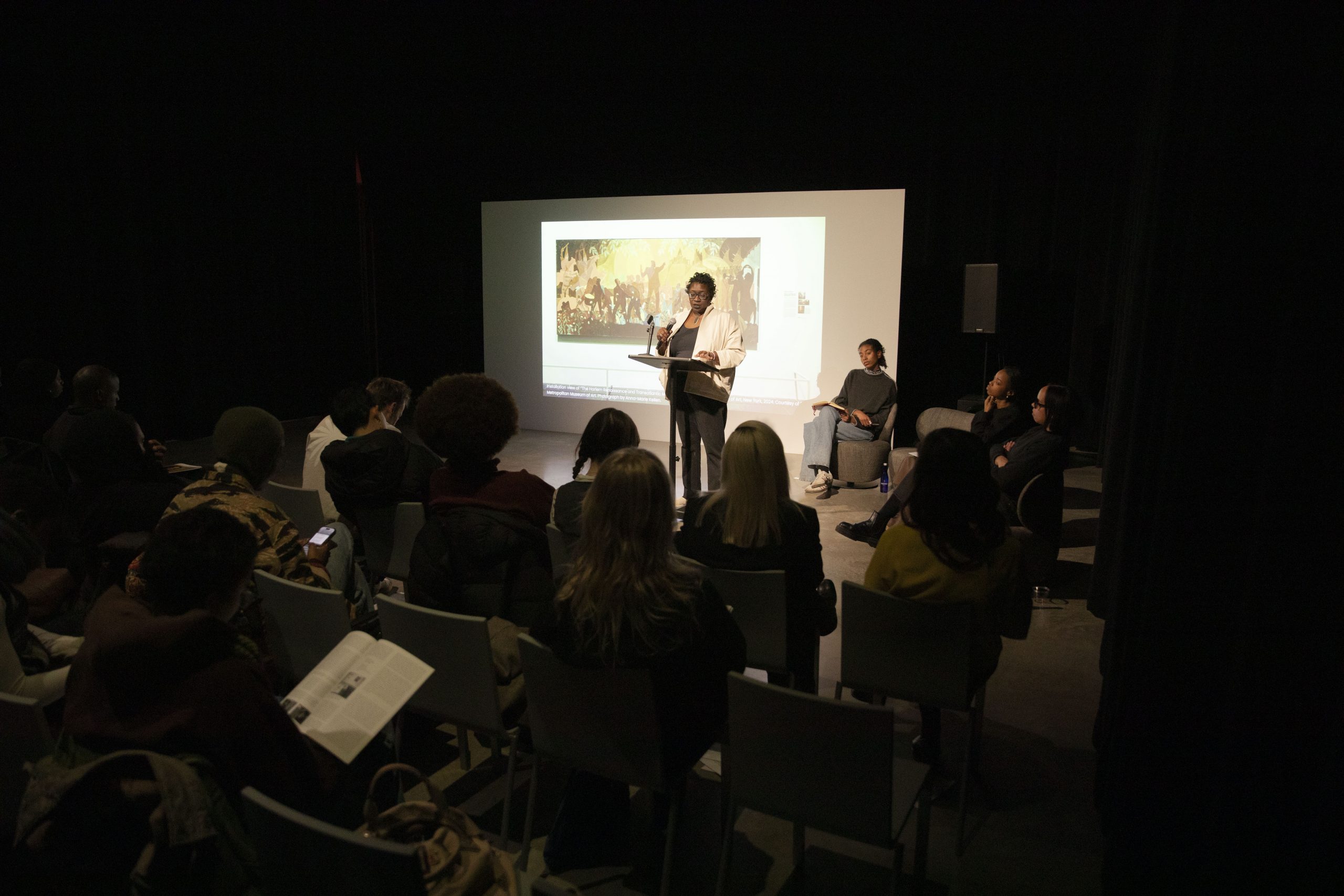
The program continued with live readings from the Topical Cream writers. In her written piece, Zoë Hopkins examined what she described as two “historical scenes of muteness” with remarkable scholarly precision. Darla Migan, reviewing The Met’s The Harlem Renaissance and Transatlantic Modernism, wove in her personal memories of growing up in 1990s Atlanta to query how the movement both reinforced and redefined notions of Black identity. Habiba Hopson closed the readings with a thought-provoking analysis of museum exhibition cancellations, questioning whether such acts of censorship actually align with institutional missions of education and discovery.
In the extremely lively and off-the-cuff panel discussion that followed, Haynes engaged the writers in a conversation that extended from their pieces to the broader landscape of art criticism today. They spoke candidly about where they feel most free to write—sometimes in personal journals or even on Instagram—and debated whether real shifts in power are taking place in the art world. In one of the most profound moments of candor, Haynes reflected on the precarious balance between fear and censorship that many curators navigate in professional art spaces.
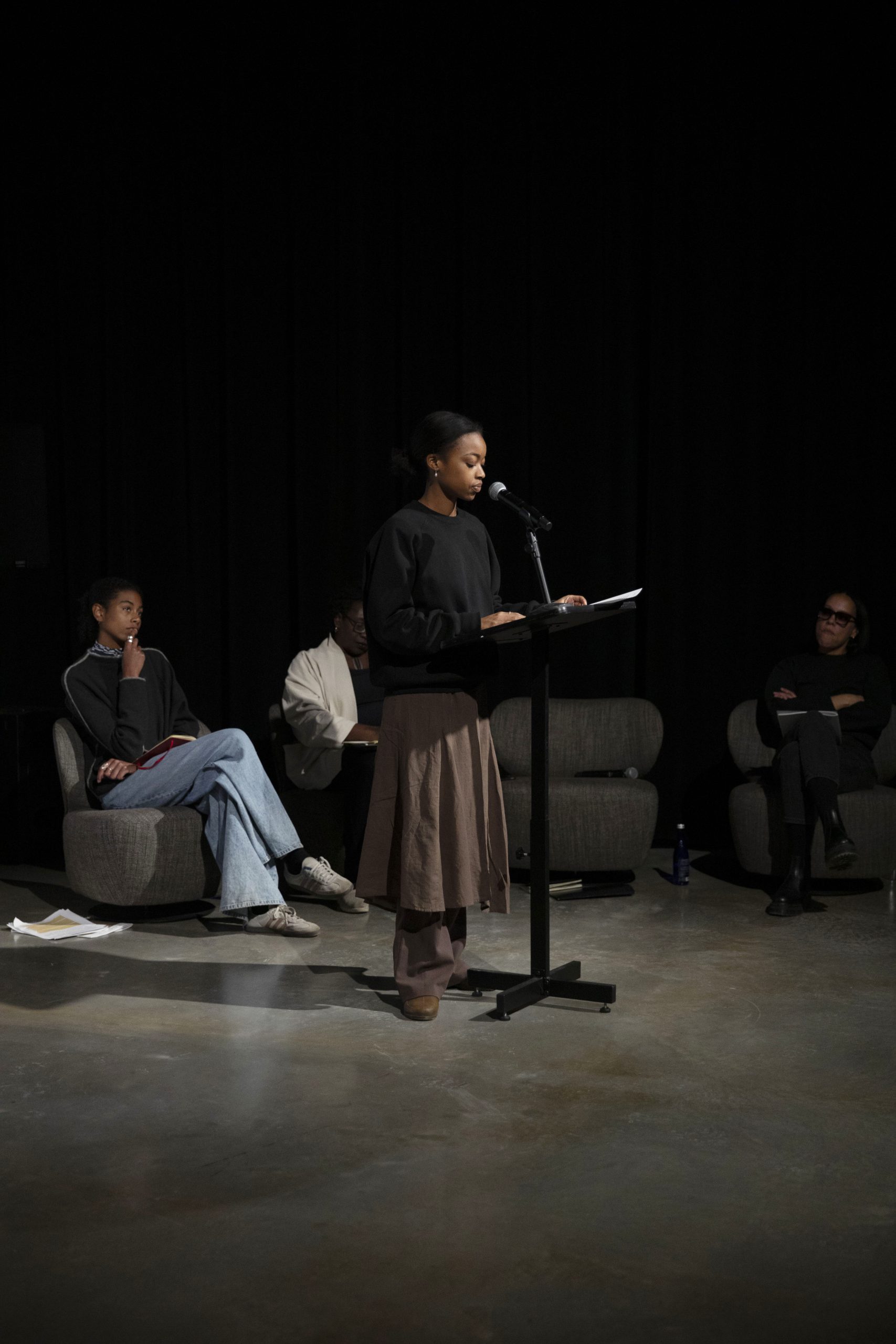
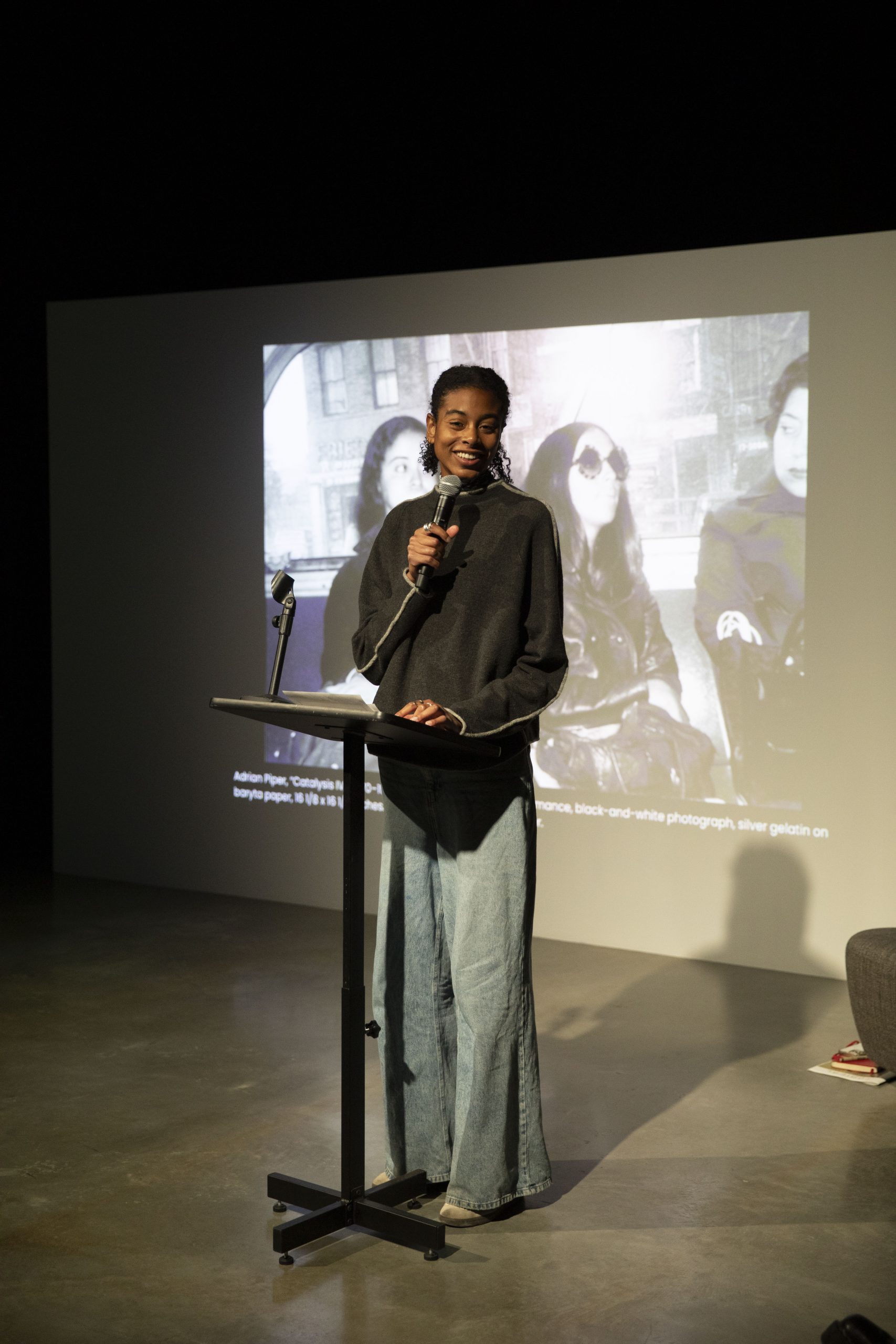
Topical Cream hosted a free and open-to-the-public reception to close the night, where the writers and guests enjoyed a kitschy picture cake of the cover of the issue and continued the conversations over libations.
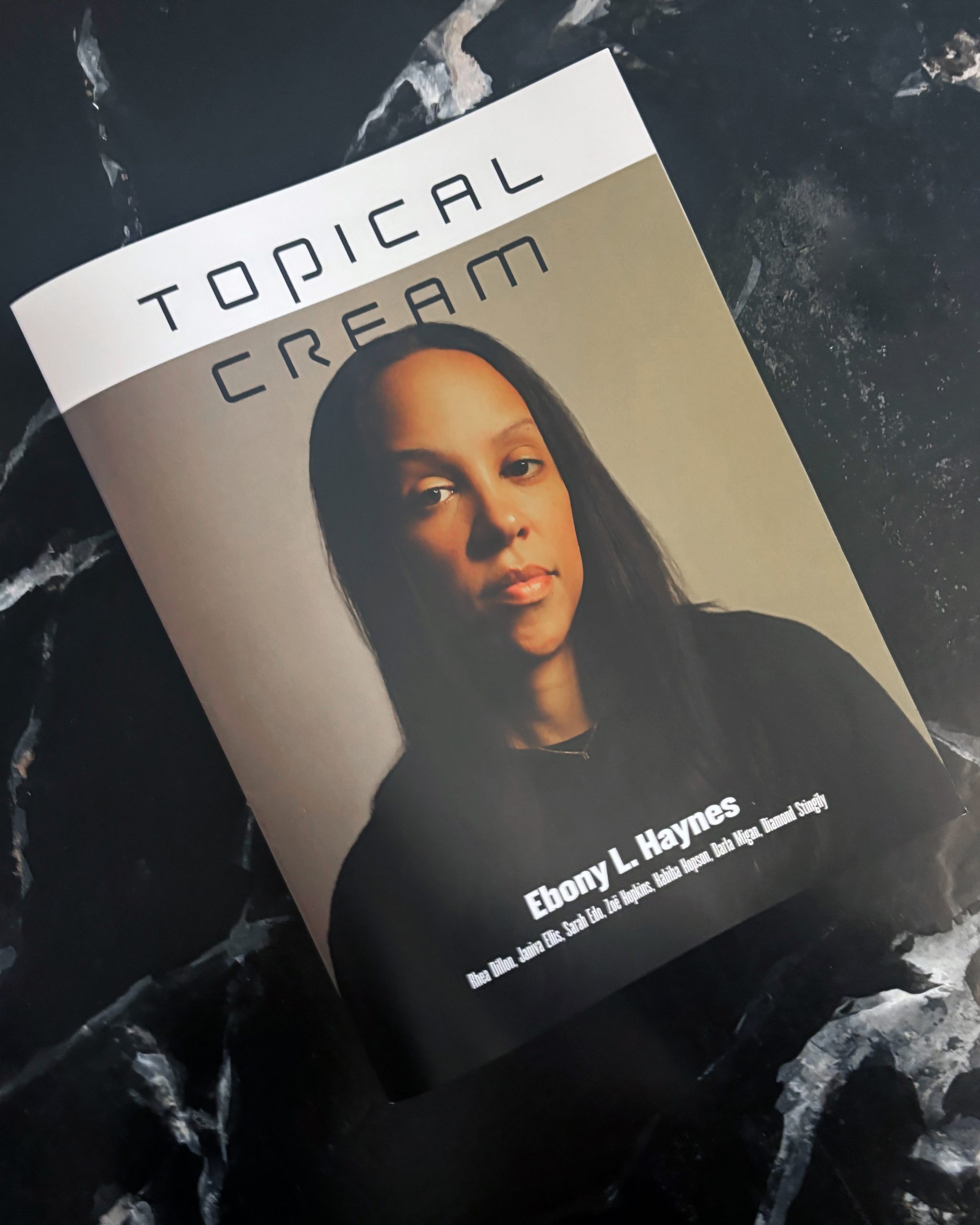
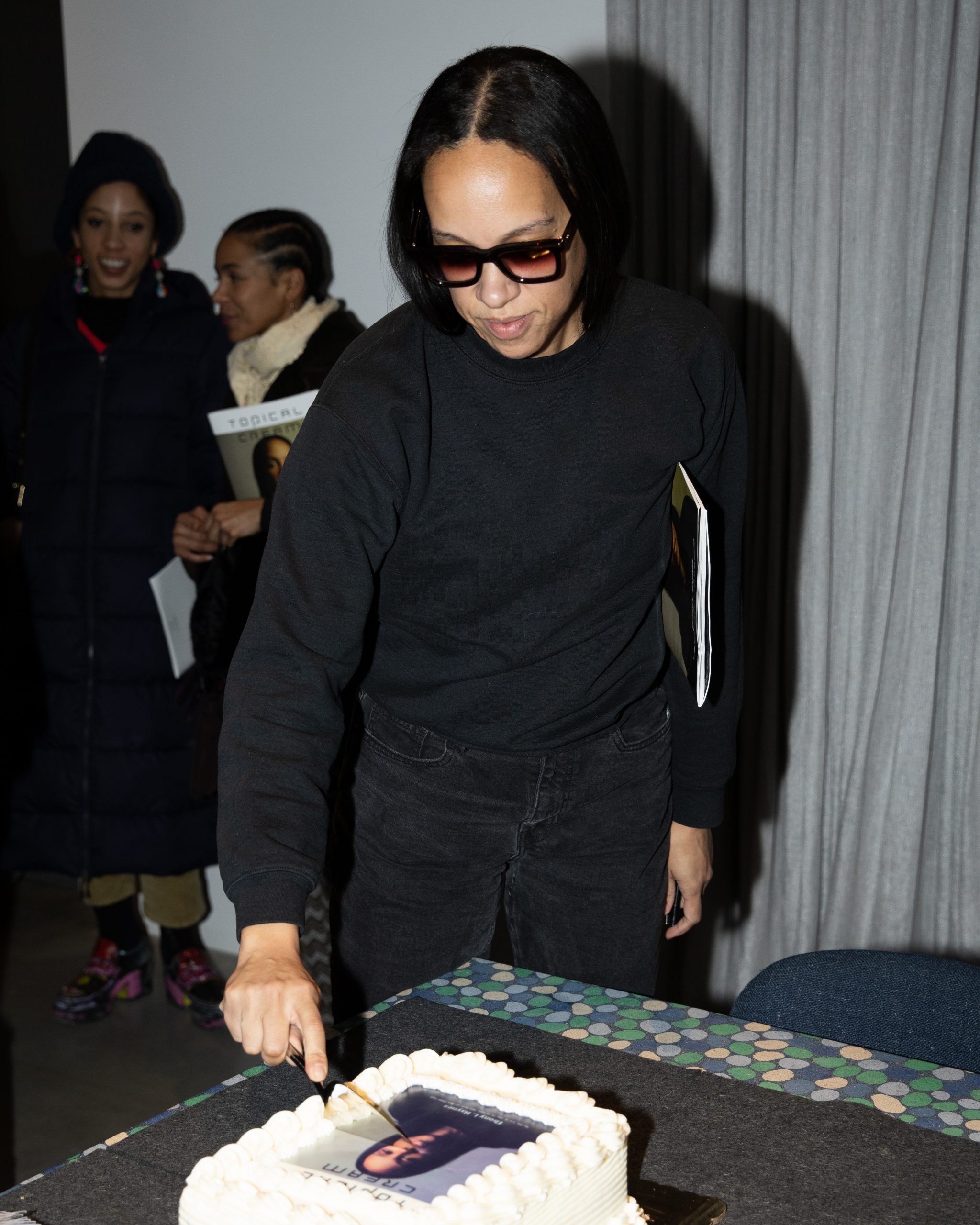
We extend our deepest gratitude to the entire Amant team for making this evening possible, with special thanks to Chief Curator
Tobi Maier and Associate Curator Patricia Margarita Hernández.
